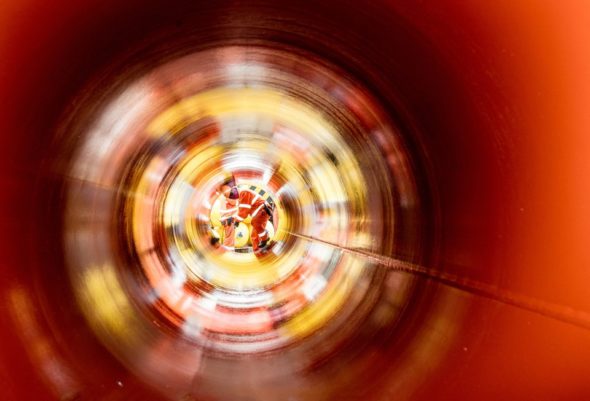Polish-German relations are quite difficult right now. Lot of people attribute quarrels around Nord Stream 2 to general discussion about rule of law and perceive Polish opposition to this project as an excuse to not to talk about internal issues. That is why some people neglect to see the connections between Nord Stream 2 on one side and foreign and security policy issues – states Sarah Pagung from DGAP.
BiznesAlert.com: What could be the reason Russia is proposing U.S. a deal on new security order in Central and Eastern Europe just now?
Sarah Pagung: There are two options. Either they view it as opening of new negotiations and they want to negotiate with NATO by showing their maximum wishes. Their also can use it as a pretext to attack Ukraine. I hope it is not the latter though.
Russians do not want to talk to Germany on this deal. What is the response in Berlin?
New government seems to be split. We see internal coalition struggle between chancellor and ministry of foreign affairs, SPD and Greens. It is hard to assess who is going to win. If Russia is not attacking Ukraine, there probably will be no tough stance towards Moscow. However, more aggressive behavior could swing the public attitude. Present situation is creating a bigger leverage for Green to stop Nord Stream 2 but I see that Scholz attitude is in line with SPD so to defend the project.
He states that Nord Stream 2 is a private business
The government wants to depoliticize Nord Stream 2 issue and states it is rather a bureaucratic topic. They want to remove responsibility by doing that. If Poland, Ukraine, or Baltic states accuse them of inactivity, they say it is a bureaucratic issue. That doesn’t work with EU, Ukraine, and U.S. More and more people in Germany realize there is a political dimension to Nord Stream 2 but they also tend to assume that it is a done deal so there is nothing to be done.
What is the role of energy crunch in this discussion?
There is a part of public connecting it to Russian actions. But some still attribute gas price surge to global gas consumption and production changes. However, these days it is easier to explain that Nord Stream 2 has also a geopolitical dimension. Lot of politicians still don’t understand how much harm has been done to relations with European partners by pursuing Nord Stream 2.
How to change that?
I am not sure if they will ever get it. Polish-German relations are quite difficult right now. Lot of people attribute quarrels around Nord Stream 2 to general discussion about rule of law and perceive Polish opposition to this project as an excuse to not to talk about internal issues. That is why some people neglect to take Polish opposition seriously and do not make the connections between Nord Stream 2 on one side and foreign and security policy issues.
What could be the impact of energy crunch on European common Russia policy?
I hope it is an opportunity to present a more assertive stance, to invest in LNG terminals, renewables and other solutions to decrease reliance on Russia and help Ukraine. With Nord Stream 2, Turkish Stream and Hungarian deal with Russia we will face huge energy security issue in Ukraine. Germany hinted that Nord Stream 2 will not be put online if there is a new aggression so Greens will could have issues with achieving any change without a clear violation of security in Ukraine. Social democrats are widening the definition. Doves in parliament like Rolf Mützenich (SPD) is opposing any countermeasures towards Moscow. They need a trigger from Russia to change that.
Is there any chance for a new security deal with Russia if there is no aggression this winter?
Not with Germany. Security-wise it is not Germany to decide but U.S. I doubt Washington wants such deal. With Greens and FPD looking and Central and Eastern Europe it would be really hard for Berlin to agree on such deal.
Interview by Wojciech Jakóbik









